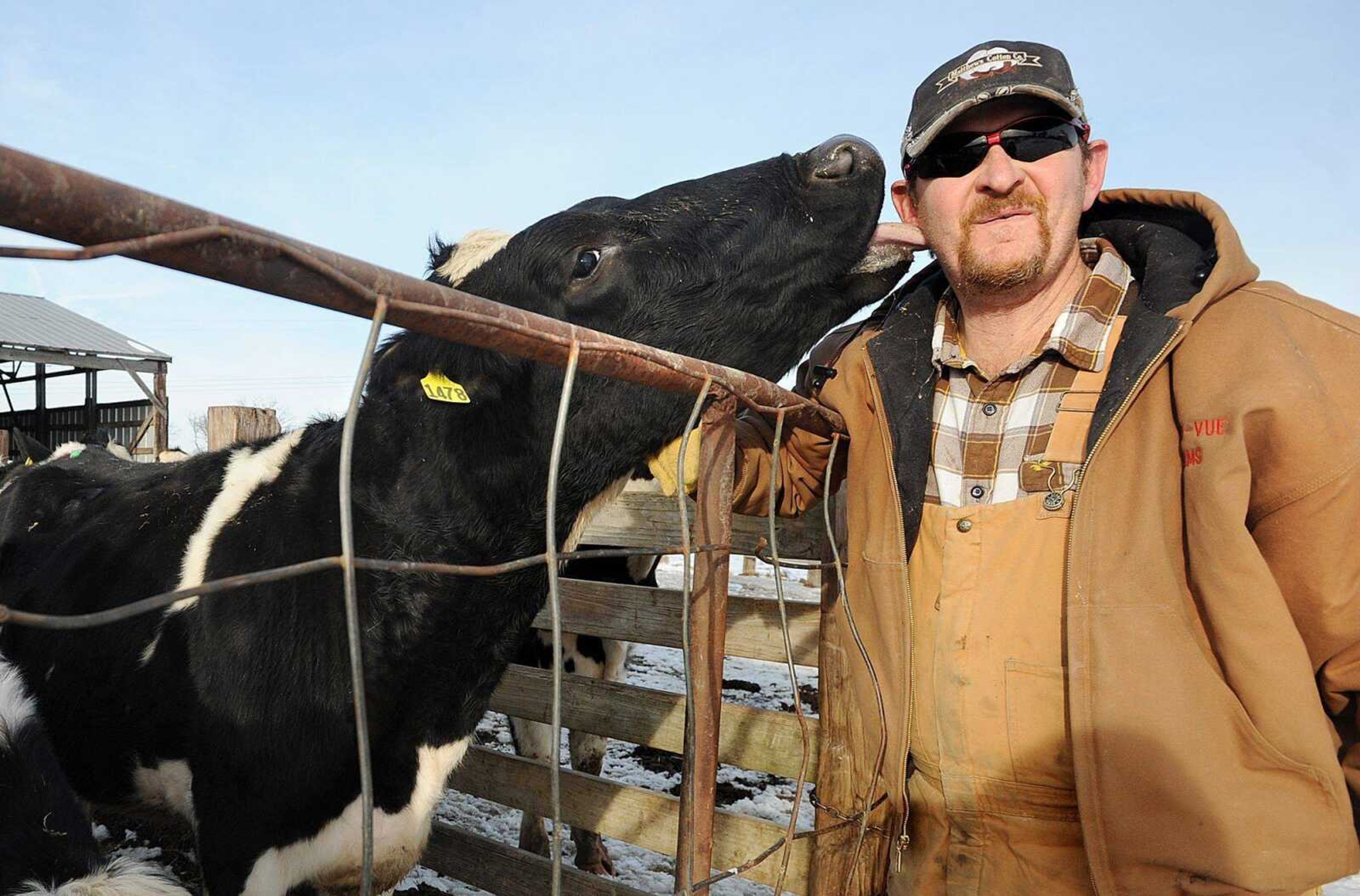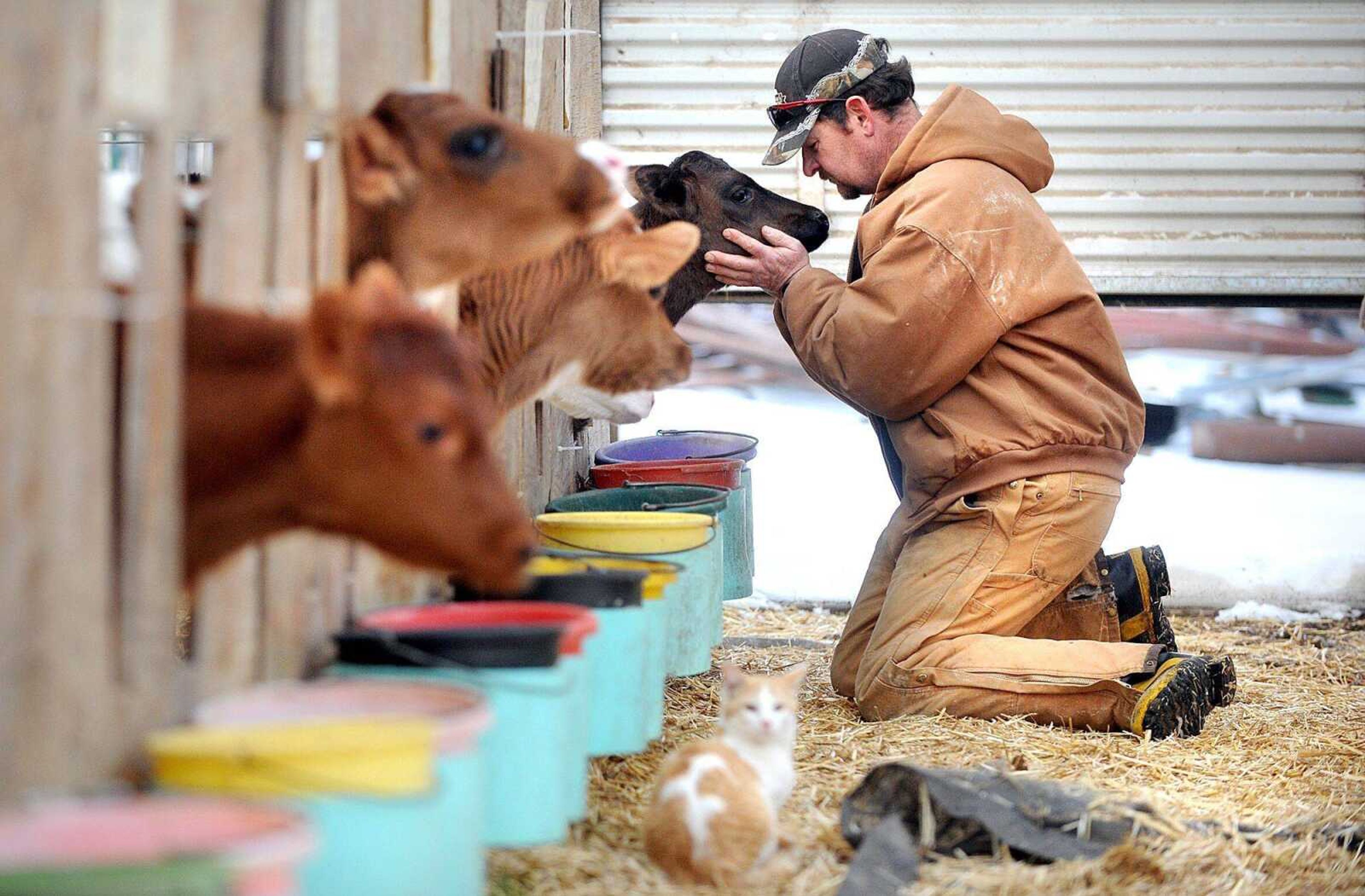Animals cope with cold, too
While the winter weather has created problems for people across Southeast Missouri, it's also been a burden on a few furry friends. Having a natural fur coat, no matter how thick, is not always enough protection, according to Kelly Goff, director of the Humane Society of Southeast Missouri...
While the winter weather has created problems for people across Southeast Missouri, it's also been a burden on a few furry friends.
Having a natural fur coat, no matter how thick, is not always enough protection, according to Kelly Goff, director of the Humane Society of Southeast Missouri.
"People sometimes forget that outside pets need shelter, too," she said. "It's really important that they be out of the cold and wind."
When cold weather hits, she said the Humane Society offers assistance to those with outside pets by providing straw for insulation, as well as dog houses, when they're available. The shelter also provides tips and information to outdoor pet owners on the best care during winter.
"It's also important to remember that outside pets need additional food when it gets this cold, because regulating temperature burns calories," said Goff. "And water bowls freeze very quickly."

When people notice an animal left out in the cold with no protection, she said they usually are quick to inform the shelter or animal control officers.
"We do see a lot of, when the weather hits either extreme, hot or cold, increases in animal-neglect calls," she said.
To keep outdoor pets warm, Goff recommends temporarily bringing them indoors. If that's not an option, she said a porch, garage or doghouse with a heat lamp can provide adequate shelter.
Dairy farmer Jerry Siemers said it takes "a little more of everything" to keep his cows warm and comfortable during cold weather. All the animals are housed inside in the winter, which requires extra bedding and sawdust.
He also gives them extra food and warm water to drink. Like people, he said cows enjoy warm drinks during the winter.
Siemers said the farm is doing "pretty well," but he did lose a calf after it wandered too far onto a frozen pond that broke open, leaving it unable to get out.
"You can't control things like that," he said. "But that's only the second time I know of that to happen in 50 years."
In Benton, Mo., Beth Uelsmann Figueroa works around the ice and snow to keep her horses in top condition. She's a manager, instructor and trainer with El Tomaria Farm Inc., which has about 80 horses that are entered in shows. The farm also offers riding lessons.
Like small pets, she said horses need to be protected from the wind.
"Where I live, it's flat, so the wind can really rip through here," said Uelsmann Figueroa. "So we make sure the barn doors aren't left open and everything's all shut up."
Some horses, including ones recently brought in from Puerto Rico, wear blankets to help keep them warm. But she said many do not need them because they've adapted to the weather. As the seasons shift, horses grow a thicker coat, or "winter hair."
"I've seen more winter hair on the horses this year than I can remember in a long time," she said. "Nature just has a way of taking care of itself."
Uelsmann Figueroa said the farm has operated since the 1960s, and although this winter has been tough, the farm is "well into the routine" of winter and has made it through without too many problems.
The biggest issue is trying to exercise the horses in the lingering cold.
"It's hard to get ready for the upcoming show season," she said. "We have an indoor arena, but when the temperature is so low you just can't ride very long. ... We do a lot of walking, stretching and flexing, but not much heavy respiration workout, which is a real disadvantage."
Working the horses too much in cold air can cause inflammation and bleeding in the lungs.
Even wild animals need protection from the cold. Matt Bowyer, wildlife regional supervisor with the Missouri Department of Conservation, said a variety of animals depend on a good habitat to survive the winter, and the agency encourages landowners to provide them. Small game, such as quails and rabbits, "tuck into" brush piles. Deer usually look for a cedar thicket for shelter from the wind, he said. Cold weather typically has a "fairly limited effect" on most animals, Bowyer said, because they adapt well.
"Anytime we have a winter like this, it causes some of the weaker animals to die off, the ones that didn't built up fat reserves or already had a disadvantage going into the winter," he said.
The department of conservation this month sent a news release that said many people were reporting fish die-offs in local ponds and lakes. But Bowyer said that is typical of the season. Winter fish kills occur when ice develops and decreases oxygen levels in the water or when fish deplete fat reserves built up during the summer and fall. This primarily effects small fish, such as shad, and not game fish, said Bowyer.
srinehart@semissourian.com
388-3641
Pertinent address:
2536 Boutin Drive, Cape Girardeau, Mo.
Benton, Mo.
Connect with the Southeast Missourian Newsroom:
For corrections to this story or other insights for the editor, click here. To submit a letter to the editor, click here. To learn about the Southeast Missourian’s AI Policy, click here.










